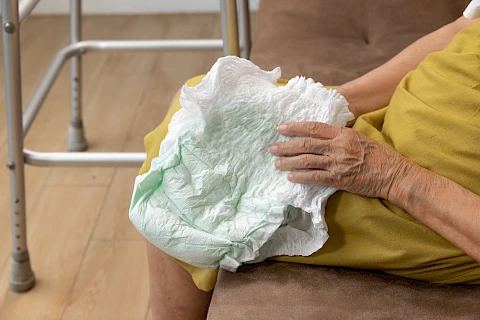
Incontinence is the involuntary leakage of urine, a condition that can significantly impact seniors' daily lives. It affects around 30% of senior women and 15% of senior men. While it might feel embarrassing, there are ways seniors can effectively manage it so it doesn't negatively affect their lives.
Learn More About Incontinence in Seniors
Incontinence is the loss of bladder control, and it comes in several types:
- Stress incontinence occurs during activities that put pressure on the bladder, such as coughing or lifting heavy objects.
- Urge incontinence is characterized by a sudden, intense urge to urinate followed by involuntary leakage.
- Mixed incontinence is a combination of both stress and urge types.
Causes may include weakened pelvic muscles, nerve damage, or lifestyle factors. Identifying the specific type is important in finding the most effective management strategies for seniors.
Talking to a Doctor
It is important to consult a doctor if seniors are dealing with incontinence. Remember that open communication can lead to better understanding and treatment. When discussing incontinence with a healthcare provider, be sure to share:
- Frequency and severity of symptoms
- Triggers or activities that lead to leakage
- Any other related symptoms
A doctor may recommend tests or evaluations to determine the underlying cause and appropriate treatment plan. Remember, medical professionals are there to help, and there's no need to feel embarrassed.
Lifestyle Changes to Manage Incontinence
Making certain lifestyle changes can significantly help manage incontinence in seniors. Consider reducing caffeine and alcohol intake to help reduce symptoms. Eating more fiber can prevent constipation, which can pressure the bladder. While it might seem counterintuitive, staying hydrated is important. Reducing fluid intake can lead to concentrated urine, which may irritate the bladder.
Pelvic floor exercises, such as Kegels, strengthen the muscles supporting the bladder. Maintaining a healthy weight is also beneficial, as excessive weight can put pressure on the bladder.
Products and Aids
Various products can help seniors manage incontinence and feel more comfortable and confident. Incontinence products like pads, briefs, and underwear can help manage leaks discreetly. Protective bedding, such as mattress covers and absorbent bed pads, can protect bedding and provide peace of mind at night.
When selecting incontinence products for seniors, it is important to consider factors like absorbency, fit, and comfort. Experimenting with different options can help seniors find what works best for them.
Managing Incontinence and Staying Social
Experiencing incontinence shouldn't prevent seniors from enjoying a full social life. For example, seniors can use the restroom before leaving home and identify restrooms at their destination. They can also carry a discreet bag with extra incontinence products and a change of clothes, just in case. Remember, many people share their experiences, and with preparedness, they can confidently join social activities.
Incontinence can be emotionally challenging, so it is important to acknowledge these feelings and seek support. Seniors can open up to trusted family members or friends who can offer understanding and encouragement. Joining a support group can also help them connect with others who share similar experiences. Lastly, they can consider speaking to a counselor or therapist if incontinence significantly impacts their emotional health.
We Can Support Seniors Through Life Changes
Addressing incontinence openly and honestly can help seniors maintain a good quality of life. Incontinence can be managed effectively by taking proactive measures, discussing concerns with healthcare providers, and making lifestyle changes.
Don't hesitate to seek help, and remember that support is available. Our team at Senior Helpers Carlisle can help seniors navigate the challenges they face in their golden years, including support with personal care. Contact us for personalized support in the Carlisle, Shippensburg, Newville, Fayetteville, and Biglerville areas.